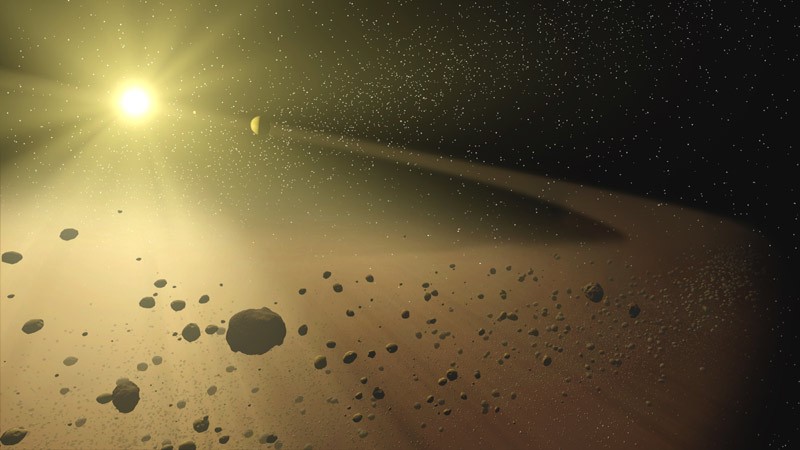
The Chelyabinsk meteorite strike on 15 February has prompted Russia to devise several preventive measures varying from beacon-sized transmitters fitted in asteroids to mass warning systems.
"Roscosmos has formed a working group with experts from the Defense Ministry and the Russian Academy of Science to create a unified system of early warning and countering space threats," said Vladimir Popovkin, Chief of Russian Federal Space Agency, Roscosmos in a government meeting.
Anatoly Zaitsen of the Centre of Planetary Protection said that the project would require about USD $500 million and it would only be possible with international collaboration.
Popkin also said that Russia was tracking Asteroid Apophis which may make an impact on Earth in 2036.
"We want to put a 'beacon' on the asteroid Apophis to ascertain its exact orbit and work out what further actions to take with respect to the asteroid's approach to the earth in 2036," he said.
However, NASA has ruled out possibility of Apophis's collision with the earth.
The recent rise in satellite-space debris collisions made Popkin warn that in about 20 years time there will be no geosynchronous orbits since all orbits would be fraught with disintegrated debris of spacecrafts.
Boris Shustov, Director of Russian Academy of Sciences Institute of Astronomy, said had the Chelyabinsk meteorite been of greater diameter and entered Earth's atmosphere at a steeper trajectory, it would have led to a catastrophe.
He added the Asteroid Apophis was nowhere near to anything classified as a dangerous object.







![Raha turns 2: Alia Bhatt -Ranbir Kapoor host jungle themed birthday party for daughter, Kareena Kapoor, Rani Mukerji, Pooja Bhatt, Karan Johar attend [Pics]](https://data1.ibtimes.co.in/en/full/805705/raha-turns-2-alia-bhatt-ranbir-kapoor-host-jungle-themed-birthday-party-daughter-kareena.jpg?w=220&h=138)
!['If I am upset, anxious, I confide in someone': Shreyas Talpade talks about mental health awareness and depression [Exclusive]](https://data1.ibtimes.co.in/en/full/805704/if-i-am-upset-anxious-i-confide-someone-shreyas-talpade-talks-about-mental-health-awareness.jpg?w=220&h=138)



